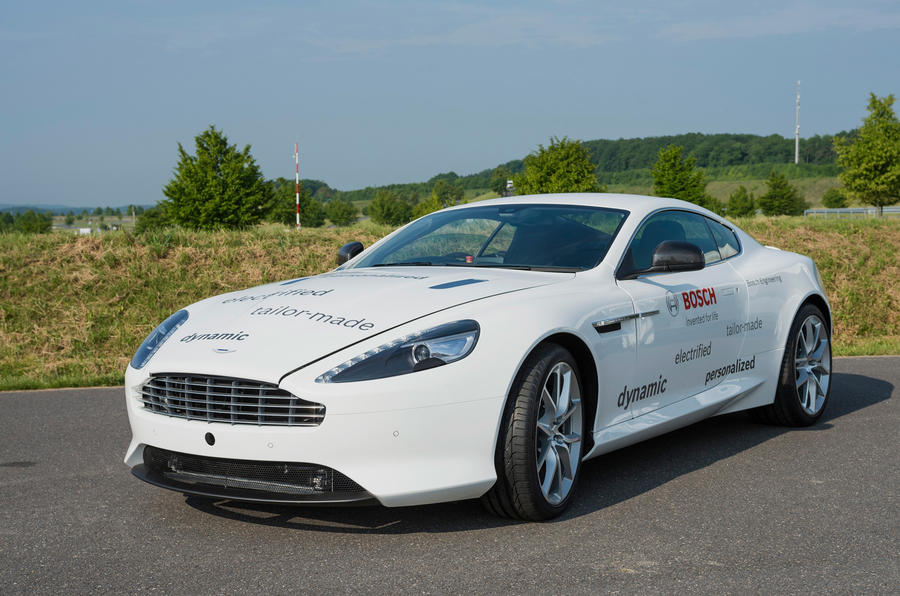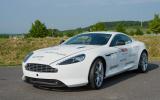Bosch Engineering has created a plug-in hybrid version of the Aston Martin DB9 that is claimed to improve fuel economy and CO2 emissions and enhance the driving dynamics and performance.
By fitting two electric motors onto the front axle of the rear-wheel-drive DB9 donor car, the set-up offers four-wheel drive with tuneable torque vectoring, traction control and pedal feel. A third electric motor sits on the engine belt.
Bosch feels that this particular powertrain architecture — with an emphasis on electrification of the front axle — offers the greatest potential for sports car hybridisation, with power from the car’s engine sent to the rear axle.
The modifications, which include an 180kW lithium-ion battery in addition to the three motors and control modules, add 300kg to the DB9’s 1785kg kerb weight. The motors also add more than 200bhp to the standard car’s 510bhp, and the hybrid DB9’s 0-62mph time of 4.6sec is said to be cut to around 4.0sec. An electric-only range of close to 20 miles improves overall fuel economy and reduces CO2 emissions.
The hybrid components are modular and can be adapted and tuned to models from brands other than Aston to allow manufacturers to develop their own distinct dynamic characteristics. Bosch says performance cars won’t meet future emissions regulations without this kind of hybrid technology.
Aston’s involvement was limited to the supply of a DB9 to Bosch for the study.
An Aston Martin spokesman said there are no plans for production, although the firm is watching the technology with interest.
The project is Aston Martin’s second high-profile venture into alternative drivetrain technology in 2013, following the company’s success with the Hybrid Hydrogen Rapide S at the Nürburgring 24 Hours last month.
Richard Lane


















Add your comment